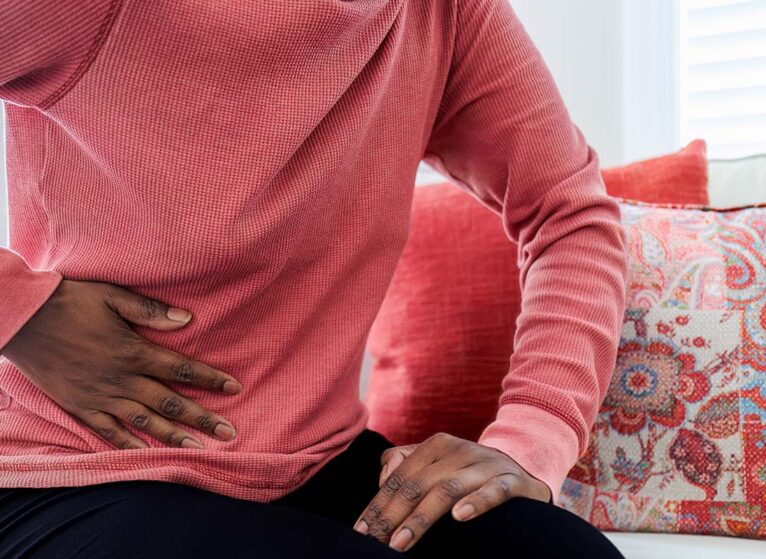Traditional medical wisdom tells us that men are more likely than women to get hernias. But that’s not the whole story. Both men and women can and do get hernias. Learn the symptoms of common hernias across the gender spectrum so that you can get the care you need.
Hernia Symptoms Across Genders
If you have a painful, tender lump near your stomach or groin, and you can’t push it back in, it might be a hernia. If the lump gets bigger when you cough, strain, or lift things, you likely have a hernia.
These symptoms apply regardless of anatomy. If you notice a bulge, see a provider and get more information.
The tricky part? Recognizing these symptoms for what they are. If a bulge isn’t that big, it might be hard to identify as a hernia. And if it’s near your groin, it might get misdiagnosed as a urologic or gynecologic problem. That’s why knowing the hernia symptoms specific to your gender can help.
Hernia Symptoms in Women
While men are overall more likely to have hernias, women have more risk factors for certain kinds of hernias.
“Women who have had pregnancies are more at risk for an umbilical hernia because of the stretching of that tissue,” says Cullen Carter, MD, a surgeon at UVA Health.
When it comes to groin hernias, women are more likely to get femoral hernias than inguinal hernias.
Carter says that femoral hernias can be difficult to spot because the bulge isn’t as visible.
“A femoral hernia bulge pushes downward, into the thigh. Sometimes there’s a little lump there, but sometimes there’s not, and a woman just has pain in that area,” he says. “In that situation, we’ll want to look more carefully at what’s going on with an ultrasound or CT scan.”
A scan can also help your provider tell the difference between a femoral hernia and a pulled groin muscle. Pulled groin muscle symptoms are similar in women and men: pain, swelling, muscle spasms, and symptoms that get worse when you’re physically active.
Sometimes, a femoral hernia can be mistaken for a gynecologic problem. Many women are referred to a gynecologist before they’re referred to a hernia specialist.
If you’re trying to figure out which specialist to see, talk to your doctor and tune into your body. Does the pain feel more muscular, or more internal (like a period cramp)? Are you having other symptoms (like trouble peeing, which could be a sign of a UTI)?
While these questions aren’t foolproof, they can help you think critically about your symptoms before you call a specialist. When in doubt, share your concerns with your doctor and talk it through.
Hernia Complications in Women
Women are less likely to have hernias, but are more likely to experience complications when they have one.
“Because of their anatomy, women have more complications or issues with hernias, such as acute incarceration or strangulation,” says Aaron Sachs, MD, a surgeon at UVA Health.
“Even if a hernia isn’t currently causing symptoms for a female patient, we usually recommend repair. In men, that’s not always the case,” he says.
Hernia Symptoms in Men
Beyond being more likely to get hernias overall, men are more likely than women to get an inguinal hernia.
“Because of their anatomy, men have a natural weak area in the abdominal wall there, in the inguinal canal,” Carter says. “Women can get a hernia there, but the male gender is a risk factor.”
Is it a Hernia?
Think a hernia could be behind your pain but not sure? Learn how to tell whether you have a hernia.
Providers look for testicular torsion in men with hernia symptoms. Inguinal hernias and testicular torsion can have similar symptoms in men.
“With both sexes, asking questions can help you pinpoint with more clarity what’s going on and what treatment you need,” says Sachs.
Not Sure if You Have a Hernia? See a Specialist
When you’re in pain, it can be hard to think straight. You’re not always clear on the source of your pain — but you know that something hurts.
Luckily, you don’t have to figure things out on your own. No matter what gender you are, if you’re experiencing groin pain, talk to your doctor. They can help you figure out what’s happening and what kind of treatment you need.


